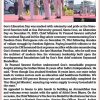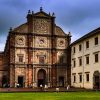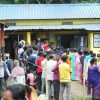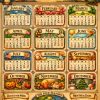Goa is abuzz with excitement as vintage bike and car owners, users, collectors and fans are decking […]
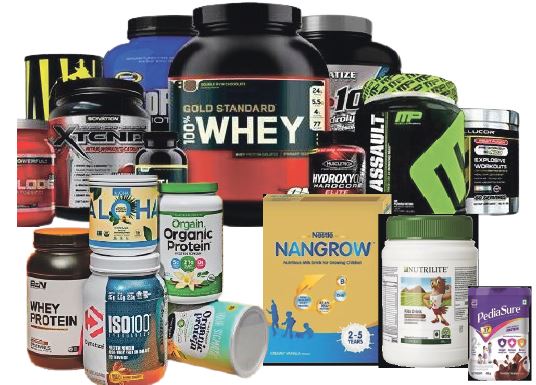
CAN PROTEIN SUPPLEMENTS REPLACE MEALS? By Pankajbala R Patel
Dec 30- Jan 05 2024, MIND & BODY, HEART & SOUL December 29, 2023PROTEINS, IMPORTANT PART OF A HEALTHY DIET: But look at how many protein supplements are vying with one another in the market for protein supplements, and more are coming! They are not economical buys either (`Ensure’ which is a protein bestseller costs Rs450 per tin). We need anything from 10% to 35% of our calories coming from protein food. In a 2,000 calories diet 200 to 700 calories should be from protein-rich food. The recommended dietary allowance to prevent protein deficiency for an average sedentary adult is 0.8 grams per kilogram of body weight.
By Pankajbala R Patel
EVERYWHERE in healthcare today – with the young and also the not-so-young, you see protein supplements presumably building up strength and with it better energy levels! However, many doctors like Dr Edwin Gomes, HOD of the Geriatrics department at the Goa Medical College & Hospital, says, “Supplements are required only when your meals are adequate in proteins. Protein supplements cannot replace meals where patients do get their body weight worth of protein which is a gram protein per kilo body weight…” But this must be proteins which include all the nine essential amino acids.
In the case of malnourished senior citizens in his Ward No115, he says, many do get a protein supplement drink along with their daily meals if they’re not eating normally. No, “research has not yet proved that increasing the uptake of protein can restore muscle mass to seniors who’re 80 plus years, you see along with improved or required intake of protein there must also be exercise….in seniors’ case it is also physiotherapy which we think is the key to triggering and gaining muscle build up…” So they have a physiotherapist attached to the ward who regularly visits with patients teach them how to do a set of exercises, which the patient’s relative or attendant caretaker or caregiver is supposed to inspire the patient to do as often as possible!
As far as the importance of protein in one’s diet is concerned protein is one of the four or five main groups of a normal diet for life on earth: Carbohydrates, proteins, fats, vitamins, minerals and water. Find them in grains, pulses, meats, fruit, vegetables, seeds and nuts. It is often said that every disease is nothing but a deficiency of something in your diet and given the right inputs body beautiful more or less replaces itself every seven years (read Dr Deepak Chopra)!
Coming to protein if there is not enough protein and exercise in your diet it will affect your general level of health. The idea is to include a complete protein source in your daily meals – be it eggs as in boiled eggs or as in omelettes, even egg white omelettes are prescribed as a high protein snack. Elsewhere, one may find protein in nuts, cottage cheese or tofu (soybean protein is valued better for those who are lactose intolerant, dairy products do create gaseous issues in some patients) and one may include a good protein shake although nobody is quite sure what a good protein shake is!
PROTEIN SUPPLEMENTS DOING WELL!
SOME educated opinions have it that most of the protein shake powders or supplements in the market – which is flooded with various protein supplements – are overwhelmingly whey protein-based and this can interfere with the normal functioning of kidneys by increasing plasma urea content, urinary calcium excretion and urinary volume, in short over-burdening the kidneys. This could lead to issues with kidney stones or some other damages.
Abroad now vegetarian and vegan movements say vegetarian proteins are superior to the non-vegetarian proteins like dairy products which rich societies consume so overwhelmingly! There is a preference for green pea protein supplements which are preferable to dairy-based whey protein supplements; the sensible whose digestive systems are fine include such foods as peanut butter or some nut and seed butters to their diet instead of dairy butter and cheese.
Remember in the oriental world of Asia it is soybean produce which dominates most of the diets and especially in the Chinese and Southeast Asian diets — in the form of soybean milk, soybean curd/cream, soybean cheese in the form of soft or firm tofu and this can well replace eggs in vegetarian diets.
The view of many nutritionist and doctors like Dr Edwin Gomes though is that only the non-vegetarian proteins like fish, chicken, lamb or beef are a richer source of the essential nine amino acids required to maintain muscle mass in the human body. Interestingly, and this is for protein seekers: five hard-boiled eggs offer something like 30 g of protein (6g per egg)! Needless to say for most patients in geriatric wards eggs are one of the most popular high-protein breakfast foods and this provides essential protein fats required. If you’re not interested in egg yolks go for only egg white omlets, although you will need something like eight eggs to give you say 30 g of egg white protein! A malnourished patient weighing 40kg requires only 40 g of protein daily via his diet as long (as long as his digestive system is functioning).
Otherwise there is the protein supplement route which may be fed to a bed-ridden patients via invasive tube through nose and into the stomach or directly into the blood stream in some cases. A recent introduction is to feed bed-ridden frail patients with millet feeds to support recovery – that is if the patients are unable to eat normally through the route of the mouth and a failing or damaged digestive system.
GMC’S PROTEIN SHAKE
AT the GMC’s Geriatrics department Ward No.115 most senior patients get a glass of powder milk daily, for the perception is that milk is an excellent source of high-quality protein. Carbs make up around 5% of milk, mainly in the form of lactose, which some cannot digest (one indication being bloating after imbibing it). Patients are also prescribed a protein supplement shake called “Protinace” (Enzotein Plus Powder) based on 100% whey protein, protease, MCT, vitamins and minerals (this kind of “pre-digested” protein mix is apparently ideal for protein-deficient run-down patients and easily digested).
Patients can also avail of other excellent options which the Sodexo kitchen team bring around at 11am and that is beverages of ragi malt or rice kanji or dal or vegetarian soup. A pertinent point Dr Gomes remembers is that, “In the old days in our Goan families, everyone and especially the elderly used to drink ragi (nachne or the maroonish small finger millet out of which the more familiar sweet “sattvo” is made) or pez mid-morning, good source of protein, protein was not a deficiency then.”
Geriatrics in any case is yet a very nascent field yet to be taken with any seriousness in India where only three places are known to have geriatric wards, one of them at Goa’s premier public hospital, namely the GMC. The others are at AIIMS in Delhi and Chennai. Many wealthy private hospitals like Manipal Hospital do not provide funding for geriatric healthcare nor do they have special wards for senior citizens.
India’s exchequer doesn’t allot more than 1 to 2 per cent for healthcare despite the growing aging Indian population; there’s practically nil provision for geriatric care in kind or in cash either in hospital or in any kind of homecare. If you are senior citizen in India all the government wants from you is your vote, and in exchange if you’re some kind of an important member of the local community you may be felicitated by your MLA annually with a shawl and trophy (which in many cases the same influential seniors collect as gifts as some kind of acknowledgement of senior citizens’ value)!
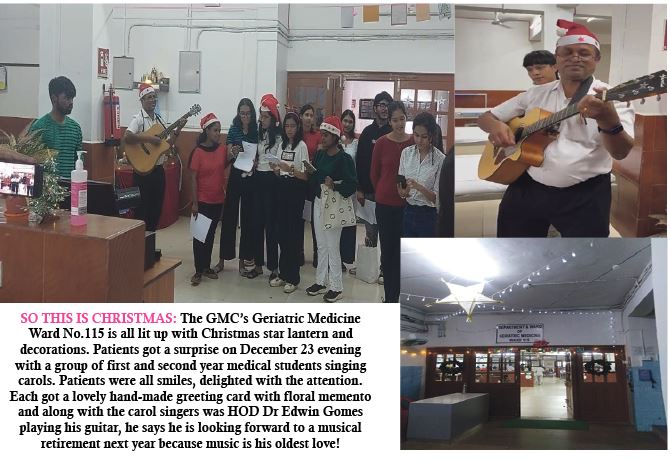
HOSPITALS FOR SENIORS
THIS is to say there’s a serious need for hospitals dedicated to senior citizen patients in the country. If there are hospitals dedicated to children, why not for senior citizens who after they cross their 70s really are at a loss about what to do and where to go with their myriad health issues taken care off to enjoy better health parameters. Most hospitals are geared for trauma and acute patients care – something which most seniors oftentimes don’t need.
However, seniors do need a different kind of healthcare and this is geriatrics healthcare; this has been seen to jell with the alternative systems of healthcare as endorsed by the alternate systems of healthcare (for example naturopathy, Ayurveda, siddha, unani and even homeopathy) – when it comes to the treatment of non-trauma and acute patients, mainstream allopathy must look into the old world sanatorium wellness kind of healthcare for seniors. Who very often benefit far more if they spend an hour sitting out in the morning sunshine – instead of popping any vitamin D supplement or getting an injection!
To return to the importance of protein in our diets make a note of this: Protein is unarguably an important part of a healthy diet. Proteins have the amino acids which are the building blocks of cellular formation, repair of bones, muscles and much else including making hormones and enzymes. Red blood cells contain a protein compound that carries oxygen throughout the body.
Remember we need anything from 10% to 35% of our calories from protein. The prescribed dietary requirement to prevent deficiency for an average sedentary adult 0.8 grams per kilogram of body weight. It is a protein-rich diet which engineers the energy in body beautiful to move it! If you’re feeling listless and lacking in energy, do some homework on protein foods good, bad and ugly. By increasing uptake of natural protein in the diet many have resolved their health issues.
